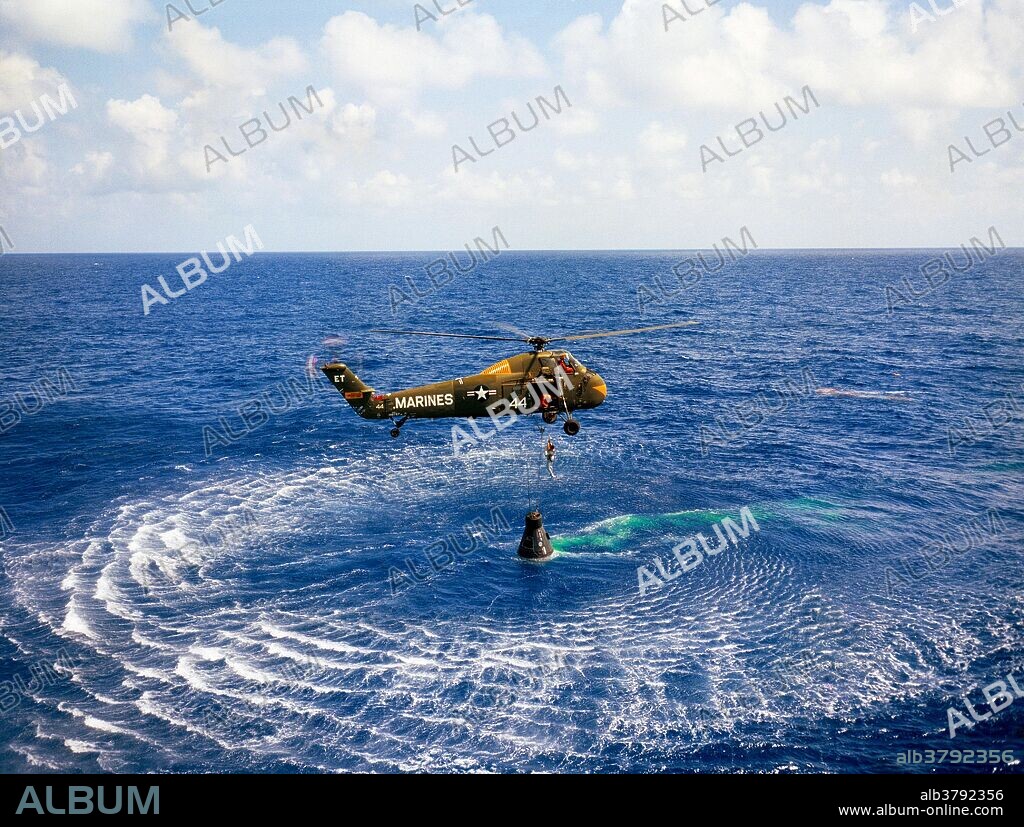alb3792356
Recovery of Freedom 7 Capsule, 1961

|
Zu einem anderen Lightbox hinzufügen |
|
Zu einem anderen Lightbox hinzufügen |



Haben Sie bereits ein Konto? Anmelden
Sie haben kein Konto? Registrieren
Dieses Bild kaufen

Titel:
Recovery of Freedom 7 Capsule, 1961
Untertitel:
Siehe automatische Übersetzung
Mercury-Redstone 3 was the first US human spaceflight, on May 5, 1961, piloted by astronaut Alan Shepard. It was the first manned flight of Project Mercury, the objective of which was to put an astronaut into orbit around the Earth and return him safely. His mission was a 15-minute suborbital flight with the primary objective of demonstrating his ability to withstand the high g forces of launch and atmospheric re-entry. He named his space capsule Freedom 7, setting a precedent for the remaining six Mercury astronauts naming their spacecraft. His spacecraft reached an altitude of 101.2 nautical miles and traveled a downrange distance of 263.1 nautical miles. During the flight, Shepard observed the Earth and tested the capsule's attitude control system, turning the capsule around to face its blunt heat shield forward for atmospheric re-entry. After re-entry, the capsule landed by parachute on the Atlantic ocean off the Bahamas. Shepard and the capsule were picked up by helicopter and brought to an aircraft carrier.
Persönlichkeiten:
Bildnachweis:
Album / NASA/Science Source
Freigaben (Releases):
Model: Nein - Eigentum: Nein
Rechtefragen?
Rechtefragen?
Bildgröße:
4200 x 3174 px | 38.1 MB
Druckgröße:
35.6 x 26.9 cm | 14.0 x 10.6 in (300 dpi)
Schlüsselwörter:
1960ER JAHRE • 60ER JAHRE • 60ER • ALAN SHEPARD • AMERIKANER • BERÜHMT • BERÜHMTE PERSÖNLICHKEIT • EREIGNIS • FORSCHUNG • HUBSCHRAUBER • MANN • NASA • NOTABEL • PAZIFIK • PAZIFISCHR OZEAN • PERSON • PERSöNLICHKEITEN • PERSÖNLICHKEITEN • PROMINENZ • RAUMFAHRT • RAUMSCHIFF • SECHZIGER JAHRE • TECHNOLOGIE
 Pinterest
Pinterest Twitter
Twitter Facebook
Facebook Link kopieren
Link kopieren Email
Email
